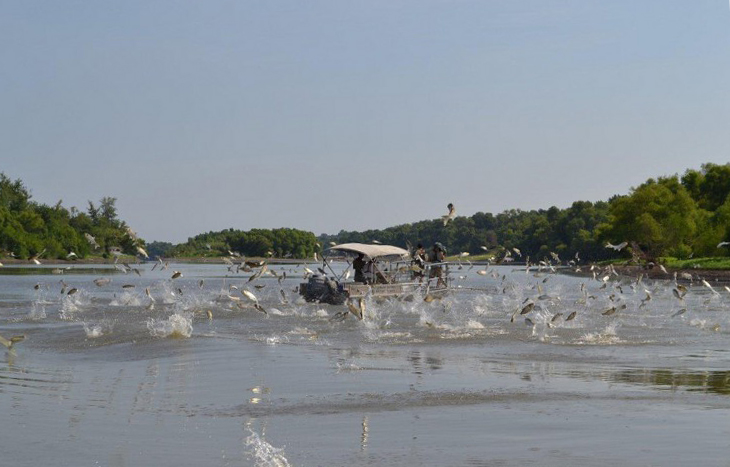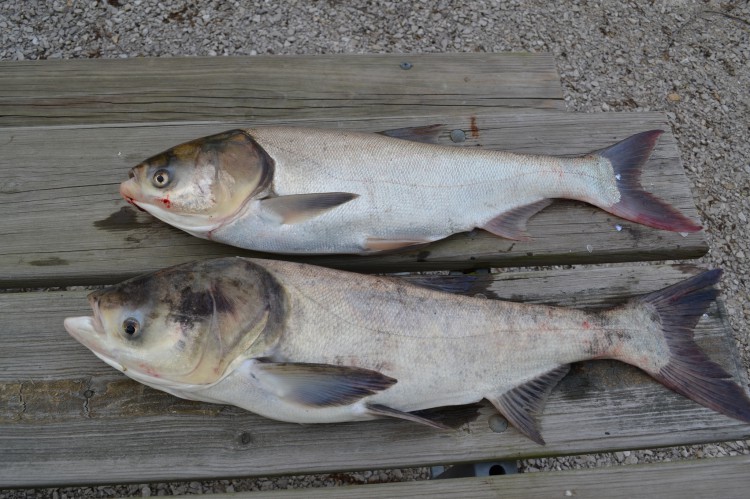A recent study found that if Asian carp establishes in Lake Erie, the native fisheries might not be significantly affected. Based on consultations with Great Lakes and fisheries specialists, the researchers estimated that Asian carp biomass could range from nearly zeroto an even largerpresence than the current walleye and yellow perch in Lake Erie. From this, estimates demonstrated both possible declines in the local fisheries due to an Asian carp invasion, as well as a potential increase from their current numbers.

These findings highlight the factor of uncertainty that resource managers and decision makers must take into account in the event that Asian carp do establish in Lake Erie.
In the last twenty years, at least three Asian carp were recovered in Lake Erie, and there is no evidence that they are established. But Asian carp ‘will continue to have access to the Great Lakes – it is important to understand what the consequences could be if they were to establish,” explains Marion Wittmann, a University of Notre Dame scientist and lead author of the paper, published in Conservation Biology.

Since their introduction to the Mississippi River in the 1970s, Asian carp spread through many lakes and river systems in the upper mid-West, and are now the dominant fish species in the Illinois River, which connects the Mississippi River to Lake Michigan via the Chicago Area Waterway System. Due to their voracious appetites for plankton (competing with native fish), their rapid rate of reproduction, and their relatively large size, Asian carp have had devastating impacts on native fish populations in these rivers, so their potential to cause damage in the Great Lakes is of serious concern.
This research was funded by NOAA’s National Centers of Coastal Ocean Science (NCCOS) and conducted by partners at the University of Notre Dame, Resources for the Future, the U.S. Forest Service, the University of Michigan, and the NOAA Great Lakes Environmental Research Laboratory.
For more information, contact Felix.Martinez@noaa.gov.
To learn more about NCCOS research on invasive species in the Great Lakes, click here.
